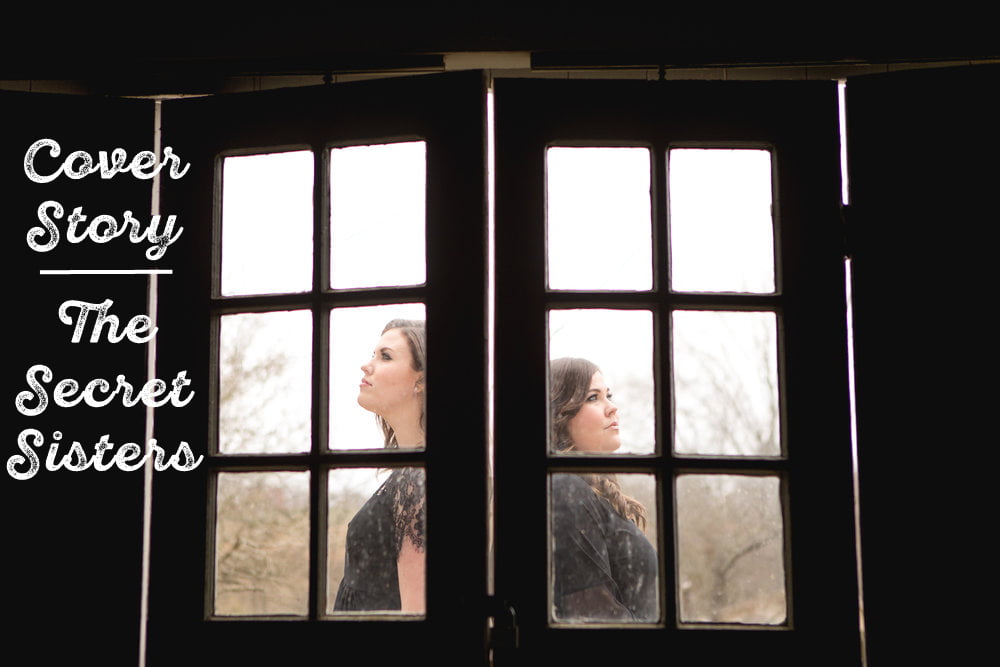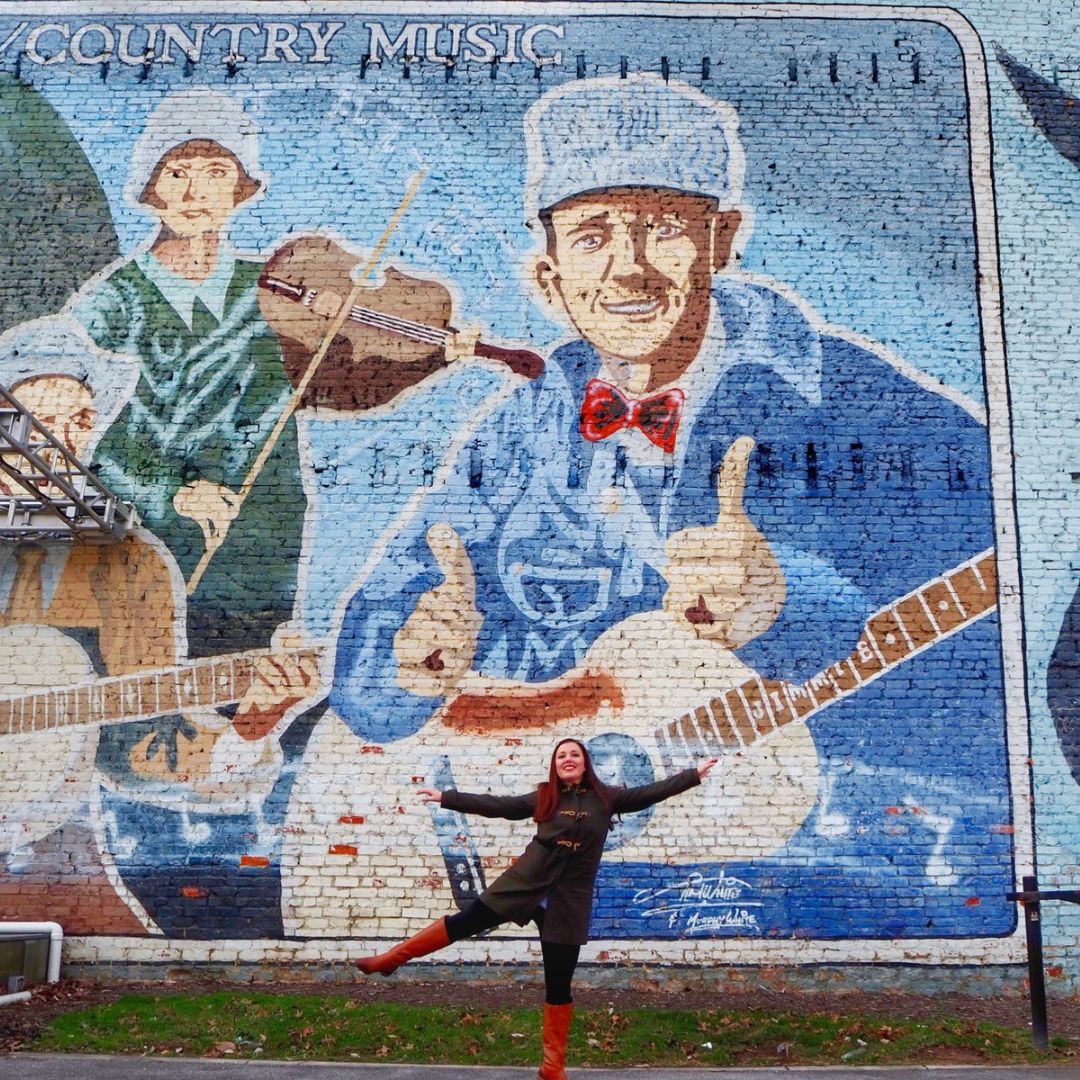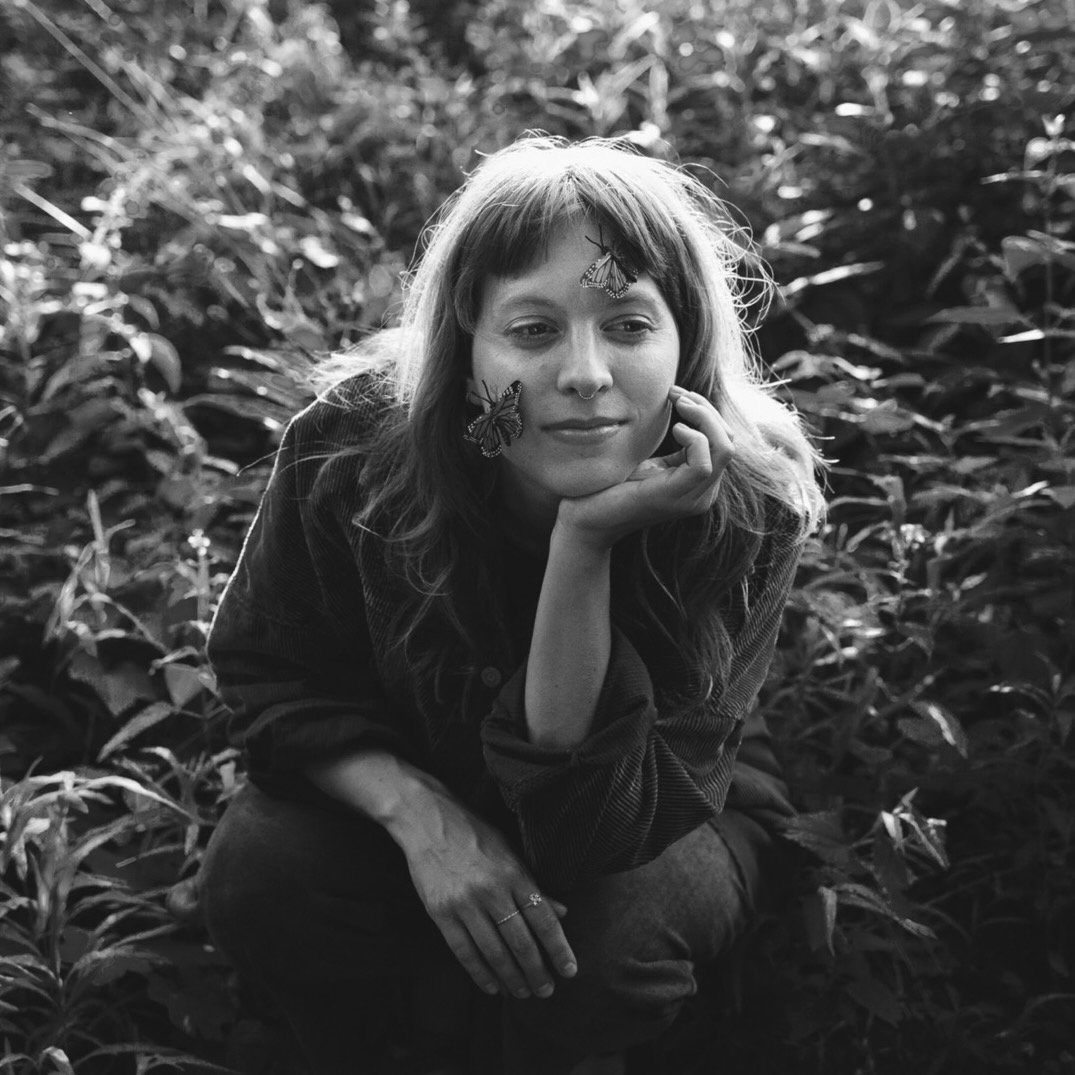The Secret Sisters had all the markings of instant success. Their first recording contract came attached with producer Dave Cobb and executive producer T Bone Burnett, and they toured with the likes of Brandi Carlile, Ray LaMontagne, and even Bob Dylan. But those factors, while exciting, weren’t a guarantee. Where music’s history is riddled with instances of surprising discoveries that led to shooting star fame, it’s more heavily peppered with the ones who didn’t make it to the finish line. For every Elvis Presley, there’s the Bobbettes. It seemed that the Secret Sisters, Laura and Lydia Rogers, were destined for some version of the former, but no one anticipated the turn things took after they released their second full-length album, Put Your Needle Down, in 2014. Slow sales caused their record label to drop them, and they soon found themselves underwater, financially and emotionally.
Looking back now on their story, it seems evident they would always turn things around; fate, having dealt them such lucky cards before, wouldn’t let that hand go to waste. At the time, though, that was harder to see. The sisters are back after three years, recently signed with New West Records, and raring to go with their third studio album, You Don’t Own Me Anymore. Produced by good friend Brandi Carlile, the album places its finger on the bruise their adverse experience in the music industry caused and doesn’t let up. “It’s about as personal as it gets,” Laura says.
Having learned a lesson or two over the past eight years, the pair are gritting their teeth but not biting their tongue. As with Sara Bareilles’s 2007 hit, “Love Song,” their title track flippantly states their independence from industry expectations. It’s more than being protective of their music; it’s about being protective of the Secret Sisters, themselves. If the business doesn’t take kindly to determined young women — and this trope has certainly fallen by the wayside as the years have produced firecrackers like Dolly Parton, Jessi Colter, and Miranda Lambert — the Secret Sisters now know the rules to the game. Still, that doesn’t mean their relationship with their music is idyllic. Songs like “Carry Me” and “He’s Fine” express the sacrifice that always follows creative success. For every hit single, there’s a home left empty while they worked on it; for every successful tour, there are two hearts left yearning as the road carries them farther away. These are not new burdens for musicians to carry, but Laura and Lydia wrestle with their meaning in invigorating ways, their harmonies speaking to their weighted and contemplative experiences as much as their lyrics do. Some returns are triumphant, others honest, but rare are the ones that exist in the nexus between those two signifiers: something bruised and brave and becoming..
Music, like many creative forms where people are trying to “make it,” involves its fair share of rags-to-riches stories, but yours involves many twists and turns. What have you learned or what are you learning from your own narrative?
Laura: I feel like I could write a book that probably no one would ever want to read. We’ve transformed so many different times. All of a sudden, we land with this larger-than-life situation, where we have a record deal and we’re touring like crazy with all these artists who are so inspirational and so successful compared to the two of us. Then, to go into this dark phase where literally everything has fallen apart and we aren’t really even sure that we’re going to create music again, and then to be where we are now … it’s so insane. If I had known it would be so up and down, I probably would’ve never went with it. But I’m glad. Even though it’s hard to go through the valleys and exhausting to be on the mountaintop, who it has created out of the two of us is pretty special. I think we’re so grateful to be where we are.
I would imagine there was a sense of security when that deal first came through, but nothing in life is a given, even if certain narratives suggest otherwise.
Laura: From the outside looking in, it seemed like this Cinderella story. All of those things were so great and, at the time, they were huge and important, but they don’t mean anything. They can be taken away. They don’t have the weight to carry you through the turmoil you might endure. You can’t get too comfortable and assume those things will sustain you.
Lydia: Also, at the end of the day, we had to rely on those relationships we had developed in the early days to get back on our feet away. We had to rely on our friends, like Brandi [Carlile], and John Paul White. Ultimately, that’s what got us out of it.
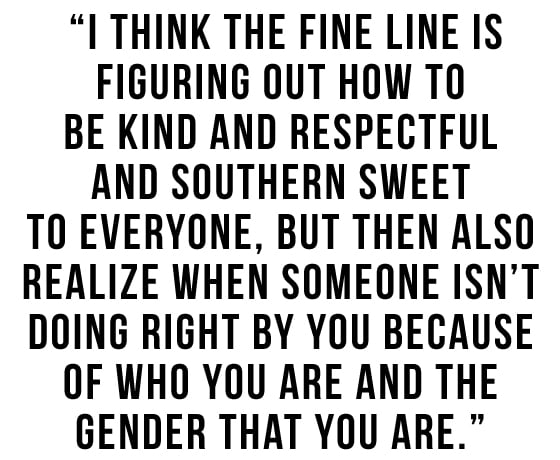
It would seem so easy to look back and say, “Of course, we were always going to make it again.” But in the moment, it’s harder to see. Is there a central take-away you can see yourself applying as you move forward?
Laura: With the first two records, we didn’t control any of it. We just showed up and we sang. We went through this phase of being these sweet, submissive, Southern girls, because that’s what we were raised to be. Moving forward, I think we’ve learned the power of saying “No, thank you.” I don’t want to sound like we’re all of a sudden divas, because we’re still the same people, but I think we have a better sense of our power and what we want and where we’re going, and a lot of that just comes with age. Going through the darkness helped us realize that, too.
That comes across in the album. There are moments of anger that shift into determination, or what the South likes to call “grit.” Where did you find your grit?
Lydia: We kinda had to reach down deep into ourselves. Well, I say that, but I guess we didn’t have to reach too deep. It was all there on the surface. We were hurt, and so we got a lot of that determination within ourselves, but also Brandi instilled that into us, too. She would call us every few months and ask us how we were doing, and she’d give us advice. When we were having bad days, she would remind us why we do what we do, and why we had to keep going. She has been such a good friend to us for a long time now, for seven years or so. She was one of the very first tours we ever did. We were on the road with her and Ray LaMontagne. Ever since then, she has been a big sister to us, and stayed in touch.
Especially during a time when a lot of people were turning their backs on you.
Laura: That’s so true, and I think people’s true colors really show; you start to realize what their motivation is all along. We’ve worked with some kind, amazing people, but the people who checked in on us really proved to us how much they believe in us, as humans and as musicians. Those are the relationships that — thank goodness — we had those handed to us in the early days, because they’re what brought us out of the moment that really could’ve been the end of the Secret Sisters. I think one thing that has happened with these records — and we’re not these over-the-top, outspoken feminist activists; I mean, obviously, we think women need to be revered and respected and equal — but I think one thing we really became aware of is what it means to be a female musician in a world dominated by male musicians and male businessmen who make all the decisions for you, as a woman. We really evolved into knowing our power as women. I hate to even talk about that because I feel like it’s such a hot button issue.
But it happens all the time in the industry!
Lydia: It’s so true, and we never realized it, until we had these conversations with Brandi. Just because of the climate that we all live in and exist in and work in now, it became apparent how many times our gender actually does impact how successful we are or how people talk to us. We do not have it nearly as terribly as many women do, and I’m trying to keep all of that in its proper place, but I think that it’s a tiny sentence in a very long conversation that’s happening right now about what it means to be a woman in a man’s world, and what it means to embrace your power and say what you have to say without being angry or …
Laura: Feisty. There’s an added layer because we’re also Southern. I think the main perception of Southern women is to be submissive and quiet and let the men take charge. That’s still very prevalent in the South, and it’s hard to fake that as Southern women, even being millennials. It’s definitely something we still have to overcome ourselves.
There are so many stereotypes associated with proper and improper behavior for women in the South.
Laura: Oh yes, especially in small towns. I think, for us, it’s a delicate balance, because we come from a very Christian environment, and we come from a very family-oriented Southern environment, and we love and revere it so much, but I think the fine line is figuring out how to be kind and respectful and Southern sweet to everyone, but then also realize when someone isn’t doing right by you because of who you are and the gender that you are. Also, I think that Lydia and I have had to figure out that it’s okay to be sweet and Southern and submissive when it’s necessary, but there are moments when you don’t need to be, and you need to stand up for yourself or you’re going to get plowed over.
It reminds me of another Southern stereotype: the firecracker.
Laura: I wish I could be 50 percent firecracker and 50 percent Southern belle, and I wish I could know exactly when to pull out each.
If you ever find out, let us know.
Laura: It’s so funny that you mentioned firecracker because our grandmother is on the cover of our new record. That’s our paternal grandmother who is now 86. She’s the definition of a firecracker. Hopefully we have a little bit of balance on that record.
What were you trying to invoke after your first two album covers?
Lydia: We were kind of, honestly, tired of putting our faces on the covers. We love our first couple of album covers, but we wanted to put something — like you said — gritty and meaningful, and she’s this really incredible woman who is kind of argumentative, but also kind of sweet and, honestly, everything that we aspire to be. We love that picture because it looks like she just came from a street fight.
Laura: She had just gotten her hair permed for the first time in that picture, but she looks like she had just come from a women’s rally.
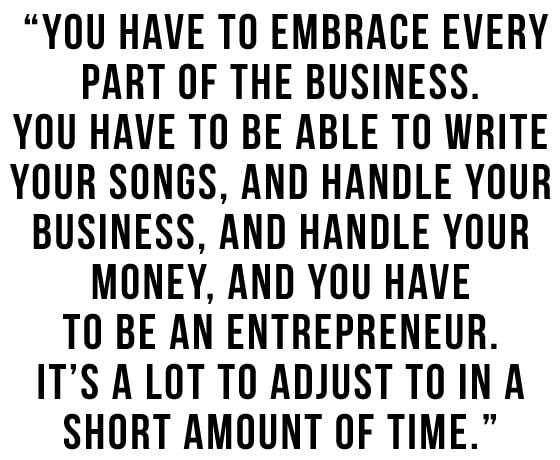
I was struck by this sense of sacrifice that keeps coming up throughout the album. You love your music, clearly, but it requires you to give up something you hold dear. So what’s your relationship with music now?
Laura: If I’m being completely honest, it’s a love/hate relationship, a lot of the time. I think I get frustrated sometimes just how incredibly hard you have to work to try and get your music out there and respected, and it seems like a continual battle. You may make a little progress, but then you realize, “Oh, but I’ve still got a really long way to go.” I’m 31 now, and, Lydia, how old are you?
Lydia: I’m 28.
Laura: We had a different trajectory for ourselves, and our timeline hasn’t gone exactly like we thought it would, and we’re in this really interesting phase right now where we’re just trying to figure out what it means to be a complete adult who has responsibilities and a marriage and family relationships and things that really matter, more than music even. My husband has a day job and he works really hard to provide for us, and sometimes — and he doesn’t project it on to me, I project it on to myself — I feel like, “Oh, here I am just chasing a dream.” It’s not the same as working an 8-to-5 job. Because I expected a different life for myself, I’m still adjusting to what it means to continually chase that dream of making great records that I’m really proud of. I’ve had to realize that there’s no end goal; it’s just keep making good records and keep playing great shows, and hopefully be able to pay your bills, and really that’s all you can ask for, and even that feels a little bit extravagant.
Lydia: I’m of the same mindset. I think Laura and I had these expectations, in the beginning, because things were handed to us, and I think we expected things to be on a different level than they are now. We’re having to adjust to the reality that it didn’t go that way, and we have to embrace being musicians wholeheartedly and enjoy the ride, as cliché as that sounds. It’s definitely a sacrifice every single day. It’s working all the time for that hour-and-a-half onstage.
It sometimes can feel like a curse — maybe that’s not the best word — but creative individuals always struggle, even when things are going well.
Lydia: You have to embrace every part of the business. You have to be able to write your songs, and handle your business, and handle your money, and you have to be an entrepreneur. It’s a lot to adjust to in a short amount of time. It was so different eight years ago, when we started.
I can’t even imagine. I know many musicians who have quit because they love the music but they hate the business.
Laura: That’s a constant temptation. Even when things are going extremely well and you have a really great timeline of a record release or a tour, it’s still hard because you think of how many hours you’ve put into it, and if I were putting this many hours into a job at McDonald’s, I would make infinitely more money than I do as a musician. Again, if the money is what you’re in it for, you’re going to be so disappointed. You’re going to have months and years where it’s unbelievable, and you’re going to have months and years where you literally have to ask your parents for help with the mortgage. I’m an example of that. Then again, if you love it, it’s part of who you are.
Lydia: Sorry, we just got really honest.
When you say “it’s part of who you are,” a creative life often means your identity is fused with your work.
Lydia: It’s like showing your diary to someone.
Laura: I think that’s why, when we went through the bad spell, it did such a number on our self-esteem and our confidence and our abilities, because we identity as Secret Sisters. It’s who I am, it’s what I do, people know that it matters to me. When all of a sudden that completely falls apart, and people are asking you, “When are you going to make another record?” and you want to tell them, “I literally can’t afford to pay my bills right now. I can’t even think about making a record.” We’ve had to learn not to place so much of our identity in what we do.
That’s smart.
Laura: You live and die by it. If it goes south, your self-esteem goes with it. So, try not to let that happen in the future.
Photo credit: Stephen Jenkins
